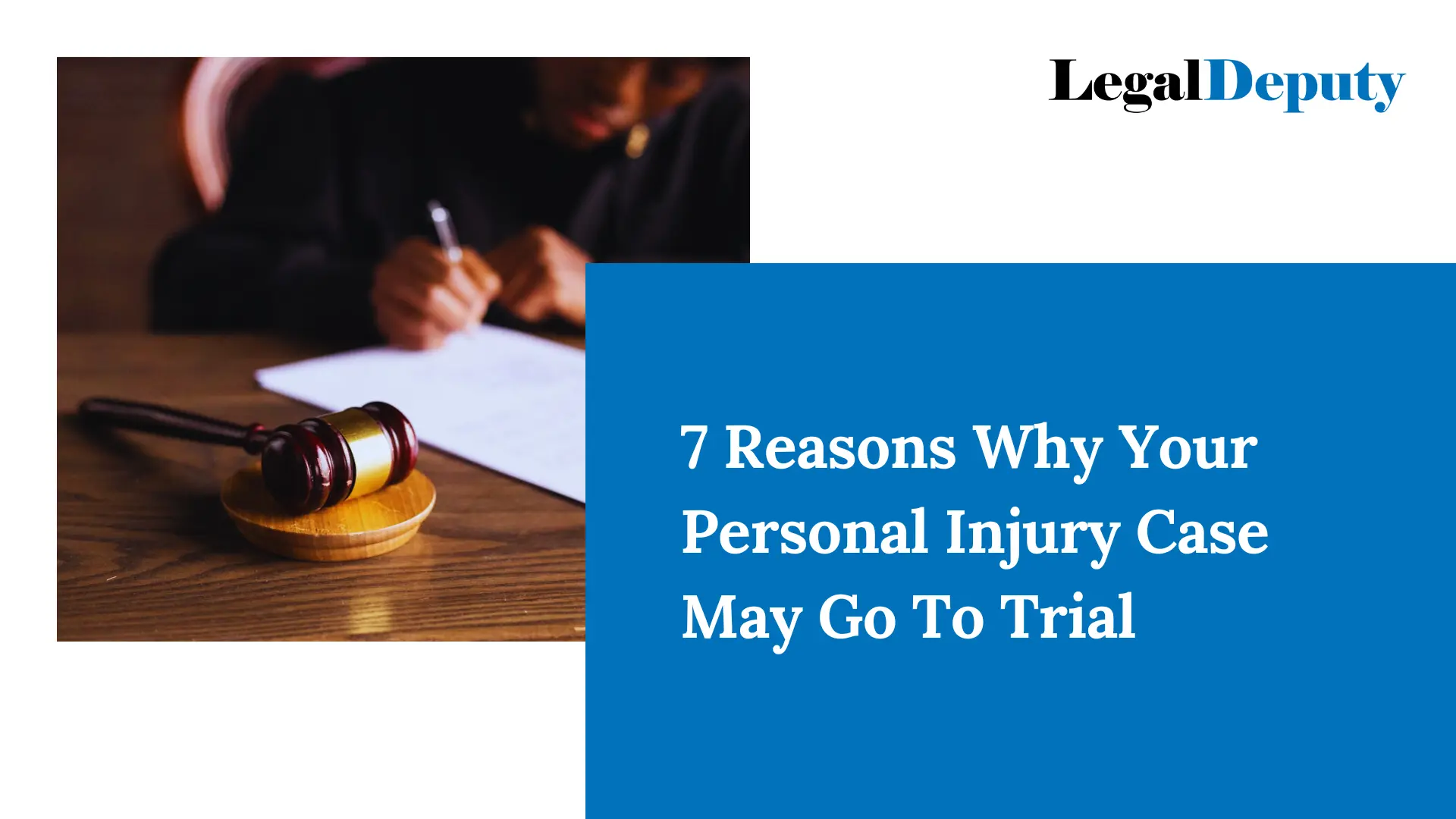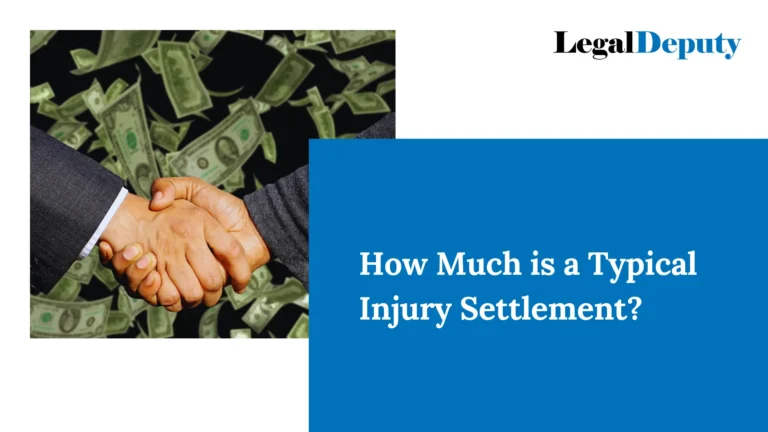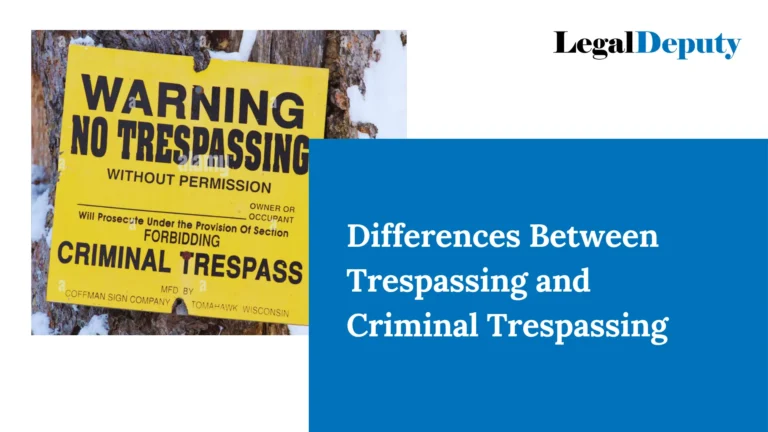7 Reasons Your Personal Injury Case May Go To Trial
Personal injury cases can often be resolved through settlements outside the courtroom, but sometimes they end up going to trial. If you’re involved in a personal injury case, understanding why your case might go to trial can help you navigate the process with greater clarity and confidence. This blog explores the various reasons your personal injury case might go to trial and what it means for you.
Introduction
Personal injury cases arise when someone suffers harm due to another person’s negligence or intentional actions. While many cases are settled before reaching trial, there are several reasons why a case might proceed to this stage. Knowing these reasons can help you understand the legal process and prepare for what lies ahead.
Here are the 7 reasons:
1. Dispute Over Liability
One of the most common reasons a personal injury case goes to trial is a dispute over liability. Liability refers to who is at fault for the injury. If the defendant (the party being sued) denies responsibility, the case may need to go to trial to determine who is legally responsible. This can occur in situations where there are conflicting accounts of the incident or when evidence is unclear.
For example, in a car accident case, the defendant might argue that the plaintiff was partly or fully responsible for the accident. If there are no clear eyewitnesses or video footage, the case might need to go to trial to resolve these conflicting claims.

2. Disagreement on Compensation Amount
Even if both parties agree on who is at fault, they may not agree on the amount of compensation. Compensation in personal injury cases can cover medical expenses, lost wages, pain and suffering, and other damages. If the plaintiff (the injured party) and the defendant cannot agree on a fair amount, a trial may be necessary for a judge or jury to decide the appropriate compensation.
For instance, a plaintiff who has suffered a severe injury may claim substantial compensation for ongoing medical care and loss of future earning capacity. If the defendant offers a much lower settlement, believing the injury’s impact is less severe, the disagreement may push the case to trial.
3. Insurance Company Refusal
Insurance companies often play a significant role in personal injury cases. They may refuse to settle for a reasonable amount, believing they can win at trial or force the plaintiff to accept a lower offer. This refusal can lead to a trial if the plaintiff decides to pursue full compensation through the legal system.
Insurance companies have vast resources and may be willing to take the risk of going to trial to avoid paying out large settlements. Plaintiffs who believe they deserve more than what the insurance company offers might choose to go to trial, despite the potential challenges.
4. Complex Legal or Factual Issues
Some personal injury cases involve complex legal or factual issues that cannot be easily resolved through negotiation. For instance, cases involving multiple parties, extensive medical treatment, or intricate legal principles might require a trial to thoroughly examine and decide the matters at hand.
For example, a medical malpractice case may involve detailed medical records, expert testimonies, and complicated medical procedures. Such complexities might necessitate a trial to ensure all evidence is properly evaluated and a just decision is reached.
Want a Free Consultation?
5. Strategic Reasons by Either Party
Both plaintiffs and defendants might have strategic reasons for wanting a trial. For instance, a plaintiff might believe that a jury will be more sympathetic and award a higher compensation amount. Conversely, a defendant might think a trial will lead to a more favorable outcome than a settlement.
In some cases, a trial can be used to put pressure on the other party. For example, a plaintiff might go to trial to demonstrate their seriousness and resolve, potentially encouraging the defendant to offer a better settlement.
6. Insufficient Settlement Offers
If the defendant’s settlement offers are consistently lower than what the plaintiff considers fair, the plaintiff might choose to go to trial. A trial can provide an opportunity to present the case fully and potentially secure a higher award than what was offered during settlement negotiations.
Plaintiffs might feel that their losses and suffering are not being adequately compensated through settlement offers. By going to trial, they can present their case in detail, including the impact of the injury on their life, to seek a fair compensation.
7. Presence of Multiple Parties
Cases involving multiple defendants or plaintiffs can complicate settlement negotiations. Each party might have different levels of responsibility and different perspectives on what constitutes a fair settlement. This complexity can lead to a trial to ensure that all parties are fairly treated and that liability and compensation are properly determined.
For instance, in a construction accident involving several contractors and subcontractors, determining who is liable can be complex. A trial can help sort out these complexities and assign appropriate liability and compensation.
Additional Point- Need for a Legal Precedent
In some instances, a personal injury case might go to trial to establish a legal precedent. This is more common in cases involving new or unique legal issues. A court ruling can set a precedent that impacts future cases, which can be important for both plaintiffs and defendants in shaping the law.
For example, if a case involves a new type of injury or a novel legal argument, a trial and subsequent ruling can provide guidance for future cases with similar issues.
Conclusion
Understanding why your personal injury case might go to trial can help you prepare for the legal process and set realistic expectations. While trials can be lengthy and complex, they also provide an opportunity to have your case thoroughly examined and decided by a judge or jury. If you find yourself facing a trial, it’s crucial to work closely with your attorney to build a strong case and navigate the courtroom effectively. Remember, each personal injury case is unique, and the reasons for going to trial can vary. Consulting with a knowledgeable attorney can provide you with specific guidance tailored to your situation.
Want a Free Consultation?
FAQ Section
How long does a personal injury trial typically last?
The duration of a personal injury trial can vary widely depending on the complexity of the case. Trials can last from a few days to several weeks. Your attorney can provide a more accurate estimate based on the specifics of your case.
What should I expect during the trial process?
During a personal injury trial, both sides will present evidence and arguments. This includes opening statements, witness testimonies, cross-examinations, and closing arguments. The judge or jury will then deliberate and issue a verdict.
Can I still settle my case once the trial has started?
Yes, settlement negotiations can continue even after the trial has begun. In some cases, parties reach a settlement during the trial, avoiding the need for a verdict.
How is compensation determined in a trial?
If your case goes to trial, a judge or jury will decide the compensation amount based on the evidence presented. This includes medical bills, lost wages, pain and suffering, and other relevant factors.
What are the risks of going to trial?
Going to trial involves risks, including the uncertainty of the outcome, potential legal costs, and the time and stress involved. However, it can also provide an opportunity for a more favorable resolution if settlement offers are insufficient.
Do I need a lawyer to go to trial?
While it’s possible to represent yourself, having an experienced personal injury attorney is highly recommended. Trials are complex, and an attorney can provide valuable guidance, build a strong case, and advocate on your behalf.
Disclaimer:
The information provided in this blog, “Why is My Personal Injury Case Going to Trial?”, is intended for general informational purposes only and does not constitute legal advice. While we strive to provide accurate and up-to-date information, the content of this blog may not reflect the most current legal developments or interpretations.
Readers should not act or refrain from acting based on the information contained herein without seeking appropriate legal or other professional advice on the specific facts and circumstances at issue from a licensed attorney in the relevant jurisdiction. This blog is not intended to create, and receipt of it does not constitute, an attorney-client relationship between the reader and the author or the author’s affiliated organization.
All liability with respect to actions taken or not taken based on the contents of this blog is expressly disclaimed. The information is provided “as is”; no representations are made that the content is error-free.
For specific legal advice regarding your personal injury case or any other legal matters, please consult with a qualified legal professional.







